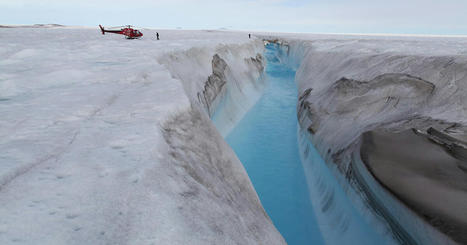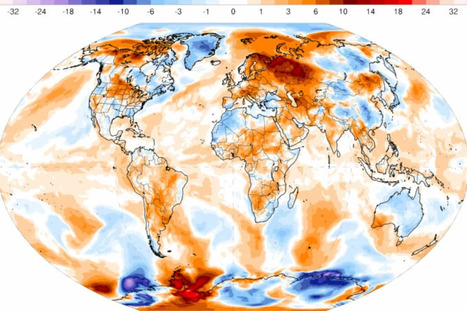Le réchauffement climatique d’origine humaine induit une accélération de l’élévation du niveau des mers. La perte de masse des calottes polaires est le contributeur potentiel le plus important et le plus incertain à cette hausse difficile à prédire. Il est crucial d’améliorer les différentes estimations qui oscillent entre +0,3 et +1 mètre à la fin du siècle.
Research and publish the best content.
Get Started for FREE
Sign up with Facebook Sign up with X
I don't have a Facebook or a X account
Already have an account: Login
Revue de presse et du net par le Pôle de partage des connaissances S&T de l'Office français de la biodiversité
Curated by
DocBiodiv
 Your new post is loading... Your new post is loading...
 Your new post is loading... Your new post is loading...
|
|













11.01.2024, par Anaïs Soubeyran